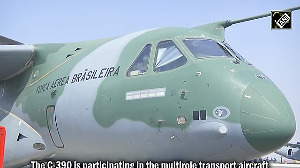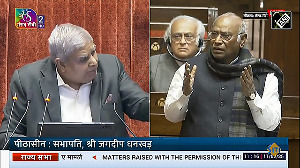The Hong Kong Ministerial of the WTO starts on Tuesday. The signals emanating from the negotiations are not good. There is a large gap between the positions of the developed and developing world on every major issue.
This has essentially happened because the developed world is blinded by its self-interest and has reverted to operating in a very aggressive, mercantilist mode of "take no prisoners."
The Doha round was foisted on developing countries on the pretext of it being a development round. It was supposed to open up markets for developing countries, especially in agricultural products, through removal of trade distorting export and domestic subsidies.
It is not civil to say I told you so, but before Doha, in an article in The Times of India, I had questioned the round arguing that it was unlikely to offer much to developing countries and may, in fact, entail new obligations on them to open their markets. To be fair, India led ably by the late Murasoli Maran, opposed the launching of the round till almost the very end and we were almost totally isolated.
What is the situation four years down the line? If one has been following the discussions at WTO and reads the draft ministerial texts and the Chairmen's reports for Hong Kong one realises that:
Even export subsidies are proposed to be eliminated only by 2010 or later. More importantly, the EU has made even these reductions conditional on concessions by developing countries in opening their industrial and services markets. Developing countries can take them to dispute settlement anyway for these subsidies.
A CII assessment indicates these will be no higher than 14 per cent even if the highest coefficient of 30 is applied to the developing countries. We have agreed to bind all our tariff lines but earlier the understanding reached and recorded in the July 2004 package was that binding will happen at twice the applied (current) rate.
Now the discussion is veering around to adding 5 to 30 per cent to the applied rate to arrive at the notional bound rate from where reductions will apply. Also, sectoral "zero for zero" initiatives, which at least for the auto industry were almost universally dismissed as being unwanted, still find a place in the text.
More perniciously, used goods are being re-termed as "remanufactured" goods and effort is on to have them treated as new goods. If this comes through, Indian markets in a large number of durables, especially vehicles, will become a dumpyard and render a great deal of Indian manufacturing uncompetitive with consequent unemployment.
We hope that there will be at least some movement on liberalisation under Modes 1 & 4, that is, cross border supply and movement of natural persons. If so, we are living in a make-believe world.
After the recent racial conflagration in France and the increasing paranoia in the the US and Europe about outsourcing, I doubt whether we would get real access for movement of natural persons. The current model of basing the manpower in India may be better for both sides.
The reality that we have to confront is that the developed countries are not interested in fair trade. Using their might they will push their interests to the hilt using every available ruse.
They will only give what one forcefully demands and extracts from them. In negotiations, one gets only what one negotiates.
The latest estimate from the World Bank talks of a benefit of $300 billion per year from a full liberalisation Doha round. Of this only $48 billion is to come to developing countries. That is 16 per cent, which is half of the 31 per cent share of the world trade that they have. Development round is it?
Global trade as it stands is open enough for India. We at Bajaj Auto face no serious impediment to expanding our exports, which have grown at a CAGR of 30 per cent over the last five years, other than our own capabilities.
It is not my area of expertise but I very much doubt if we stand to gain much in agricultural exports. In all major agricultural commodities, be it sugar, wheat or rice, Indian prices are significantly higher than global prices. Opening up our market can only hurt Indian agriculture.
Moreover, the developed world knows how to thwart developing country exports through setting standards and other non-tariff barriers. Recently, The Hindu carried a report that the US has blocked export of mangoes from India for the last 17 years by not doing a Pest Risk Assessment!
Whenever I push for keeping the national interest in mind, I am called protectionist. It is good to find exalted company. On December 6, Rick Wagoner, Chairman of General Motors, wrote a piece in The Wall Street Journal seeking a "level playing field" vis-à-vis foreign competition.
If GM, the world's largest automobile company is calling for it, then why do we feel shy of stating our case? I believe three important facts need to be stated.
The bottom line is simply that Indian industry, agriculture and services must see benefits twice as much as they give to the developed world for a deal to make sense to us. Is such a deal on the table at Hong Kong? I for one do not see it.







 © 2025
© 2025